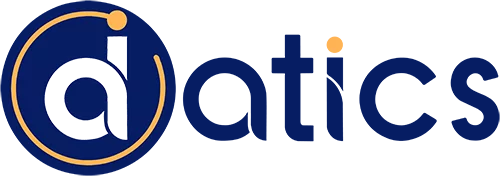Why Finding the Perfect Coder is Critical for Your Startup
When launching a tech startup or developing a new project, the ability to find a coder who aligns with your vision and technical needs is crucial. A skilled coder can turn your innovative ideas into a market-ready product, ensuring a streamlined development process and timely delivery. However, without the right approach, this task can seem overwhelming.
Here’s a quick guide on how to find a coder:
- Evaluate Your Needs: Understand your project scope and specific technical requirements.
- Explore Hiring Options: Look into freelancers, in-house developers, and outsourcing companies.
- Assess Skills and Experience: Review portfolios, work samples, and conduct coding assessments.
- Set Clear Expectations: Create an effective job description and set communication guidelines.
I’m Umair Majeed, CEO of Datics AI. With experience in helping startups find a coder, I’ve seen how the right tech talent can transform ideas into reality. Let’s dive deeper into making your search successful.
Understanding Your Needs
Before you start looking for the perfect coder, you need to understand your own needs. This involves defining the project scope, crafting a detailed job description, identifying the specific skills required, and considering the previous experience necessary for the job.
Project Scope
The project scope outlines what you want to achieve. It includes the goals, deliverables, tasks, costs, and deadlines. Think of it as your project’s blueprint. A clear scope helps you and the coder stay on the same page.
For example, if you’re building a mobile app, your scope might include:
- Features: User login, profile management, notifications
- Platforms: iOS and Android
- Timeline: Six months
- Budget: $50,000
Job Description
An effective job description is crucial to attracting the right talent. It should be clear, concise, and detailed. Here’s what to include:
- Job Title: Be specific (e.g., “iOS Developer with SwiftUI Experience”)
- Project Overview: Briefly describe your project and its purpose
- Responsibilities: List what the coder will be doing daily
- Requirements: Specify the skills and experience needed
- Benefits: Mention what you offer (e.g., competitive pay, flexible hours)
A well-written job description not only attracts qualified candidates but also helps filter out those who don’t fit your needs.
Specific Skills
Identifying the right skills is key. Depending on your project, you may need expertise in certain programming languages or frameworks. Here are some examples:
- SwiftUI for iOS development
- Kotlin for Android development
- JavaScript for web development
- Python for data analysis
Make sure to list these skills clearly in your job description. If you’re unsure which skills are needed, consult with a technology expert or interim CTO.
Previous Experience
Experience matters. Look for candidates who have successfully completed similar projects. This increases the likelihood that they can handle your project’s challenges.
For instance, if you’re developing an audiobook app, you might want someone who has:
- Experience with media player frameworks
- Worked on apps supporting Apple CarPlay and Android Auto
- Handled real-time monitoring and storage of media player conditions
Reviewing portfolios and previous work samples can give you a good sense of their capabilities.
By understanding your needs in these areas, you’ll be better prepared to find a coder who fits your project perfectly. Next, we’ll look at where to find these talented individuals.
Where to Find a Coder
Finding the right coder for your project can be a game-changer. Here are some options to consider:
Freelancers
Freelancers are great if you need flexibility and specialized skills for short-term projects. Websites like Datics AI provide a platform to connect with freelancers who have been vetted for quality and reliability.
Pros:
– Flexibility: Hire as needed.
– Specialized Skills: Find experts in niche areas.
– Cost-Effective: Pay only for the work done.
Cons:
– Less Control: May not be as invested in your project.
– Variable Quality: Skill levels can vary widely.
In-House Developers
For projects requiring ongoing development and maintenance, hiring in-house developers might be the best option. This approach offers greater control and team cohesion.
Pros:
– Full Control: Direct oversight of work.
– Team Cohesion: Better collaboration and communication.
– Long-Term Investment: Developers are more invested in the company’s success.
Cons:
– Higher Costs: Salaries, benefits, and office space.
– Time-Consuming: Recruitment and onboarding take time.
Outsourcing Companies
Outsourcing companies can manage entire projects, from planning to execution. They are ideal for large-scale projects that require a variety of skills.
Pros:
– Comprehensive Services: End-to-end project management.
– Access to Diverse Skills: Teams with varied expertise.
– Scalability: Easily scale your team up or down.
Cons:
– Higher Costs: More expensive than freelancers.
– Less Direct Control: Project management is handled externally.
Platforms
Platforms like Datics AI offer a middle ground between freelancers and outsourcing companies. They provide vetted talent and often include project management tools.
- Datics AI: A vast marketplace where you can find freelancers with various skill sets. Datics AI also offers tools for project management and time tracking.
Pros:
– Vetted Talent: High-quality candidates.
– Project Management Tools: Integrated tools for easier management.
– Flexible Contracts: Suitable for both short-term and long-term projects.
Cons:
– Higher Fees: Platforms may charge a premium for their services.
– Competition: High demand for top talent.
By exploring these options, you can find the perfect coder to meet your project needs. Next, let’s dive into how to evaluate potential coders to ensure you make the best choice.
Evaluating Potential Coders
Finding the perfect coder is just the beginning. Now, let’s dive into how to evaluate potential coders to ensure you make the best choice for your project.
Portfolio Review
A coder’s portfolio is a window into their skills and experience. Look for:
- Diverse Projects: A variety of projects shows versatility.
- Relevant Experience: Similar projects to yours indicate familiarity with your needs.
- Quality of Work: High-quality, polished work is a good sign.
For instance, if you’re developing a mobile app, check if the coder has built similar apps before. Looking at their past work can give you confidence in their ability to deliver.
Work Samples
Reviewing work samples is crucial. It helps you see their coding style and problem-solving skills. Here’s what to focus on:
- Code Quality: Is it clean and well-documented?
- Functionality: Does it work as intended?
- Creativity: Are they innovative in their approach?
Coding Assessments
Coding assessments are a great way to objectively measure a coder’s skills. These tests can be customized to fit your project’s needs. Here’s why they are important:
- Objective Evaluation: Removes bias from the hiring process.
- Skill Verification: Ensures the coder has the necessary skills.
- Real-World Scenarios: Tests their ability to handle project-specific tasks.
A coding assessment should be the first step in the hiring process. Companies like Datics AI offer automated technical assessments that help in evaluating candidates beyond their resumes.
Specific Questions
Asking the right questions during an interview can provide deeper insights into a coder’s abilities and mindset. Here are some examples:
- Problem-Solving: “Can you describe a challenging project you worked on and how you overcame the obstacles?”
- Technical Skills: “How do you approach optimizing code for performance?”
- Teamwork: “Can you share an experience where you had to collaborate closely with a team?”
By thoroughly evaluating potential coders through their portfolios, work samples, coding assessments, and specific questions, you can make an informed decision and find the perfect coder for your project.
Best Practices for Hiring
When you’re ready to hire a coder, following best practices can make the process smoother and more successful. Let’s dive into some key areas: creating an effective job description, interview tips, communication, and setting expectations.
Effective Job Description
A clear and detailed job description is crucial. It sets the tone for what you expect and helps attract the right candidates. Here’s what to include:
- Project Scope: Clearly define what the project entails. Is it a short-term task or a long-term engagement?
- Skills Required: List the specific skills you need. For example, if you need someone proficient in SwiftUI and Kotlin, mention it explicitly.
- Experience Level: Specify whether you need a beginner, intermediate, or advanced coder.
- Responsibilities: Outline what the coder will be doing day-to-day. Will they be modifying existing apps, adding new features, or performing QA?
- Company Overview: Briefly describe your company and its mission. This helps candidates understand your values and culture.
Interview Tips
Interviews are your chance to assess a candidate’s fit for your project. Here are some tips:
- Structured Interviews: Use a consistent set of job-relevant questions to evaluate each candidate fairly. This helps predict their performance on the job.
- Technical Assessments: Include coding assessments or problem-solving tasks. This gives you a sense of their technical abilities.
- Soft Skills: Don’t overlook soft skills. Ask about their communication style, problem-solving approach, and how they handle feedback.
- Real-Life Scenarios: Present real-life scenarios they might face on the job. This shows how they think on their feet and handle practical challenges.
Communication
Good communication is key to a successful working relationship. Here’s how to ensure it:
- Set Clear Channels: Decide on communication tools (e.g., Skype, Slack) and make sure everyone is on the same page.
- Regular Check-Ins: Schedule regular check-ins to discuss progress, roadblocks, and next steps. Daily updates can be very effective.
- Transparency: Encourage transparency. Roman Predein, a full-stack developer, believes that good communication and transparency are essential for efficient work.
- Feedback Loop: Create a feedback loop where both you and the coder can provide constructive feedback. This helps improve the working relationship and the project outcome.
Setting Expectations
Setting clear expectations from the start can prevent misunderstandings and ensure smooth collaboration:
- Working Hours: Define working hours and availability. Make sure the coder is available during billable hours for screenshare sessions, as mentioned in the research.
- Deliverables: Specify what deliverables are expected and when. For example, uploading progress to a Git branch daily.
- No Outsourcing: Be clear that outsourcing tasks to third parties is not allowed. This ensures quality and accountability.
- Support: Let them know that help is available if they hit a wall. Your project owner is there to assist, so encourage them to ask questions.
By following these best practices, you can streamline the hiring process and find the perfect coder for your project.
Next, let’s discuss the cost of hiring a coder and how to budget effectively.
Cost of Hiring a Coder
When planning to find a coder, understanding the cost is crucial. Rates can vary based on experience, skill level, and project complexity. Here’s a breakdown of what you can expect to pay:
Beginner Rates
Beginner coders typically have less than two years of experience. They are ideal for simple tasks or projects with a tight budget.
- Hourly Rates: $30 to $50 per hour
- Monthly Rates: Around $4,800 to $8,000 (assuming 160 hours of work per month)
Beginners are great for straightforward tasks but may need more guidance and supervision.
Intermediate Rates
Intermediate coders have 2-5 years of experience. They can handle more complex projects and work more independently.
- Hourly Rates: $50 to $75 per hour
- Monthly Rates: Approximately $8,000 to $12,000
These coders strike a balance between cost and skill, making them suitable for medium-complexity projects.
Advanced Rates
Advanced coders have over five years of experience and often specialize in specific technologies. They are best for complex projects requiring high expertise.
- Hourly Rates: $75 to $150 per hour
- Monthly Rates: From $12,000 to $24,000 or more
Advanced coders can handle sophisticated tasks and bring a wealth of knowledge to your project.
Budget Planning
To budget effectively, consider the following:
- Project Scope: Define the project’s complexity and the skills required. More complex projects will need higher-skilled (and higher-cost) coders.
- Duration: Estimate the project duration. Long-term projects may benefit from negotiating a monthly rate.
- Flexibility: Allow some flexibility in your budget for unforeseen issues or additional features.
Here’s a simple table to summarize the costs:
| Experience Level | Hourly Rate | Monthly Rate |
|---|---|---|
| Beginner | $30 – $50 | $4,800 – $8,000 |
| Intermediate | $50 – $75 | $8,000 – $12,000 |
| Advanced | $75 – $150 | $12,000 – $24,000+ |
Planning your budget with these rates in mind will help ensure you find the right coder for your needs without breaking the bank.
Next, let’s address some frequently asked questions about finding a coder.
Frequently Asked Questions about Finding a Coder
How much does it cost to get a coder?
The cost to find a coder varies depending on their experience level:
- Beginner: $15 – $30 per hour. Ideal for simple tasks or projects with a tight budget.
- Intermediate: $30 – $75 per hour. Best for more complex projects requiring a moderate level of expertise.
- Advanced: $75 – $150+ per hour. Suitable for high-stakes projects needing specialized skills and extensive experience.
Planning your budget according to these rates can help you find the right coder without overspending.
How do I hire a coder?
Hiring a coder involves several steps:
Write a Clear Job Description: Specify the project scope, required skills, and experience. For example, if you need a website, mention if it’s a six-page site or a complex e-commerce platform.
Post the Job: Use platforms like Freelancer.com or Datics AI to reach a wide range of coders.
Evaluate Candidates: Review portfolios and work samples. Look for coders with experience in similar projects.
Conduct Interviews: Ask specific questions about their past work, problem-solving skills, and availability. For instance, “Can you describe a challenging project and how you overcame the issues?”
Run Coding Assessments: Test their coding skills with a small project or problem. This can reveal their practical abilities and fit for your project.
Can I hire someone to write a program for me?
Absolutely! Whether you need a simple script or a complex system, you can hire a coder to write a program tailored to your needs.
For instance, platforms like GeeksProgramming specialize in connecting you with skilled coders who can handle various coding needs, from web development to scientific computing.
When hiring, ensure you:
- Define Your Requirements: Clearly outline what the program should do, the technologies it should use, and any specific features you need.
- Check References: Speak to past clients to gauge satisfaction and reliability.
- Set Clear Expectations: Establish timelines, payment terms, and communication channels upfront to avoid misunderstandings.
By following these steps, you can find the perfect coder to bring your vision to life.
Conclusion
Finding the perfect coder is crucial for turning your vision into reality. By understanding your needs, exploring various hiring options, and evaluating potential candidates thoroughly, you can make an informed decision that will benefit your project.
At Datics AI, we specialize in staff augmentation to help you find skilled coders who are the right fit for your business. Our team is committed to delivering top-notch results by leveraging the latest technologies and maintaining clear communication.
Final Tips:
- Define Your Requirements: Know what you need before you start looking. This includes platform choice, feature set, and user needs.
- Evaluate Expertise: Look at the developer’s technology stack, past projects, and industry experience. Make sure they have the skills you need.
- Ask Questions: Don’t hesitate to ask about their portfolio, services, and maintenance support. Clear communication is key.
- Consider Costs: Understand the cost factors, including hourly rates and project complexity. Always budget for unexpected expenses.
By following these steps and tips, you can confidently choose the right coder for your project, ensuring a smooth and successful development process.
Ready to find the perfect coder? Learn more about how Datics AI can help with your project. Discover our staff augmentation services and get started today.




